A Necessary Warning Notes: The following post will contain book and movie spoilers. The post also contains subject matters not suitable for sensitive readers. Proceed with caution.
As you read Perfume: A Story of a Murderer, written by Patrick Suskind, you are confronted with many questions, thoughts, and scents. You smell the pages constantly, with the dash of hope that you might smell what the main character of the book, Jean-Baptiste Grenouille, is smelling. The smell of rocks, the smell of fear, the smell of love, all of this and more is on the olfactory journey Suskind takes us on. Around every corner, we are confronted with questions, thoughts, smells, and the constant and nagging feeling that something is not right. The subtitle of the book, A Story of a Murderer, is a dead giveaway, but for the majority of the book you are confronted with the sad life story of Grenouille, but not him as a murderer. Instead, how I felt while reading the book is that this is someone overwhelmed by their passion for a subject, driven to the edge of sanity, only to be consumed by what he loved. This is the narrative I want to maintain in the review of this classic book.
Driven by Passion and Blinded by Desire
While reading the book, I thought about various things but the one that came to mind most often was the simple thought of why not conquer the world? This will not make much sense, especially if you have not read the book. Let me explain. Many people have riches beyond the imagination of many. But still, they do not use it to make things better for either themselves or others. Some have the power to rule the world, but their power is their eventual demise, even though they had it all. Many today have the world in their palms, but they are blinded by their desire.
What does this mean? What does this have to do with the book Perfume?
Grenouille has a talent unlike any other. Yet, he does not use this to promote health, or to make the perfect perfume, no, he is driven by one desire, which ultimately leads to his demise.
And in this small insight, I find the book to have its biggest punch. Psychologically, those who have the most power, who have it all, do not want to have it all. Or stated otherwise, In having everything, in possessing vast amounts of money or power, the person has what so many others desire, but he himself does not have what many other people have.
What does it smell like?
Grenouille does not have a smell. He functions as a ghost among the people. He also possesses the ability to make any smell. He creates the emotions people hold toward him. He essentially has the power of shapeshifting. Yet, he does not use this power to advance some nefarious plan to rule the world, nor does he pursue it to make riches. Instead, he does what he does in order to feel better about himself, to be loved, to have a scent. In the end, this desire to be loved overwhelms the people around him and Grenouille gets what he essentially wanted in a very bizarre and strange ending. And somehow this ending works, it suits the work, albeit very quickly and short-lived.
Again, my mind wandered to why this character did not end up gaining the world, through money, love, or fame (as a master perfumer), and so on. But the answer is rather simple. Grenouille was consumed by the very thing that gave him power. In a memorable line, he notes that he himself is not subject to the spell of his perfumes, but I would rather argue against this. He is by definition the one that is most under the spell of his perfume, or his lack of scent. In the end, this drives him mad. He is so under the spell of his scentlessness that he could have ruled the world, could have amassed countless wealth, yet nothing came of this. He did not pursue these dreams, he could not get away from the spell of his own medicine, his own perfume, even though it was the absence thereof.
The Perfect Murder
The book places the perfect murder in tension with the desire for that which consumes us. For months, Grenouille got away with murders, something that the modern reader would find hard to believe. But with the power of scent, or the lack of scent, Grenouille became a ghost that no one could find. The perfect murder. The motive was so absurd - stealing the scent of another - that no one would have found him. But his own hubris led to his demise as he yearned for a particular smell. He could not live without it, and in the end, when he got what he yearned for, it was pointless. In the scene in which he understands this, I was reminded of the Ecclesiastes shouting everything is vanity, vanity!
And this is the powerful commentary of this book. Watch out what you desire for, as this will consume you, and after you manage to get what you wanted for so long, it will be of no worth. The book breaks away from the idea of the hedonistic treadmill, in the sense that Grenouille did not constantly run after yet another goal, a desire. Instead, he wanted one thing, only one thing, and when I got what he wanted (or thought he wanted) it did not affect him. One might take a different approach and claim that we do not know what we want, and in attaining these false desires a type of hopelessness might develop. And this was also revealed by Grenouille, as he wanted to achieve scent, so that people could accept him, acknowledge his existence, as a human and not as a ghost. But his desire to be acknowledged got mixed up with being loved, and as he was loved by so many, he could not feel anything back, he could not worry about this love. As they loved the scent, and not him.
In the end, he could have committed the perfect murder, but he did not choose this path as his desire to be loved took over. And with most classics as this book, we start to feel emotions for the main character, even though he is devoid of human emotions, he is a murderer, and he is not by any measure of the word a good being. This is achieved by Suskind suspending the murder scenes until the end of the book, but he also keeps us at a distance. The reader is left still sympathising with Grenouille and not immediately with the girls he eventually murders. All of the murders happen in less than 20 pages, it gives the reader no detail, and we do not form a bond with these girls. Suskind achieves something incredible with this technique, we come to see these girls as Grenouille has, mere ingredients.
If Suskind spent any time describing the agony of either the victim or the family of the victim, we might have ended up judging Grenouille, but because we were not allowed this privacy, our focus and emotions remained with Grenouille, viewing the world through his eyes, sympathising with him. The murders feel too far away, the making of the ultimate scent and perfume was done behind closed doors, and we as the reader only saw things from a safe distance. Brilliant, from my perspective. Suskind achieves a strange detachment of the reader, and we become complicit in the murders, because we do not condemn them. Suskind, and not Grenouille, committed the perfect murder.
Achieving the Incomprehensible
What is it we desire? In the end, what is it really that we desire? The answer to this rather simple question is multifaceted, beyond the grasp of a single person. But in the end, one can boil it down to the simple statement that we desire to live. And in understanding what our desire to live is, one might begin to understand this novel. The surface reading might be the simple understanding of the desire to capture for himself the smell or scent of the red-haired girl. But I would rather argue that a fundamental existential question is asked by Suskind: Are we human if we are not accepted as human by others? One can make this question even more complex: Are we human - the idea we have in our subjective mind - if we are not accepted as human - the objective idea held in the collective mind - by others? What I mean by this is that we are asked to think about what the collective takes to be human from the subjective experience.
Grenouille desires to have a scent. Why does he desire this? Because he thinks that this will make him human in the eyes of others. He himself judges whether he is human or not from the perspective of the collective. Because he does not have a scent, something he sees everyone else has, he does not accept himself. He is on the constant search for different smells, he can mask his scentlessness with different smells so that people love him, fear him, and all the other emotions. Yet, he cannot come to accept that he is human even with the outcome being that everyone loved him as he applied the final perfume. This is because it was not from the collective or objective perspective that he found love, it was from his subjective perspective. They loved him not because of the objective position of collective acceptance. Instead, he was loved from his subjective perspective of his own making, from the scent that he thought (or knew) people desired. He masked his own subjectivity in the desire to be loved for his subjectivity, but deep down he knew that this would be impossible. In the end, he could no longer continue as he knew the outcome he desired, to be loved objectively - that is, for having a scent - is an impossibility. In the end, he could create the world, but he could never be present in that world.
Postscriptum, or to Smell or Not
Smells are all around us. Losing one's ability to smell, as so many have during the pandemic, amounts to losing a limb. It cuts you off from the world, it takes away from your colourful experience of existence. In Perfume, Suskind turns this idea around. It is not the disability of losing one's ability to smell, it is losing one's scent. Being scentless does not, I think, amount to being a ghost, as Suskind tried to do in the novel. This is a bit oversimplified, as we have four other senses that will tell us about another's presence. And that is why I rather want to read scent as a metaphor. It is a metaphor for what others think it is to be human. The collective idea of humanity, allowing others "in", and keeping others out. We desire to "fit in", if one wants to reduce it to that statement, but we do not want to "fit in" according to our own standards, instead, we want to conform to the collective. To what the collective takes to be human.
And this is why I think the novel is so great. It is more than just the story. We become Grenouille. Suskind wrote the novel in such a way as to (i) leave out a lot of detail, and (ii) allow for a lot of introspection. Halfway through the novel, nothing really happens. It allows the reader to place themselves into the position of Grenouille, and in the end, we feel a strange feeling of loss. We as readers never really sympathised with the victims or the townspeople. We all climbed into the character of Grenouille and we saw that the acceptance we all yearn for, or desire, is what made the character of Grenouille so tragic.
In any case, I hope that if you read the book, that you also enjoyed it like I did. We become co-authors when we read ourselves or our own meaning into the work. But this is important, as the book does not exist in a vacuum. We bring to the book our lives, which changes the book.
Happy reading, and keep well.
The photographs used in this post are my own, taken with my Nikon D300. The writings in this post are also my own, albeit inspired by the reading of the awesome book, Perfume.
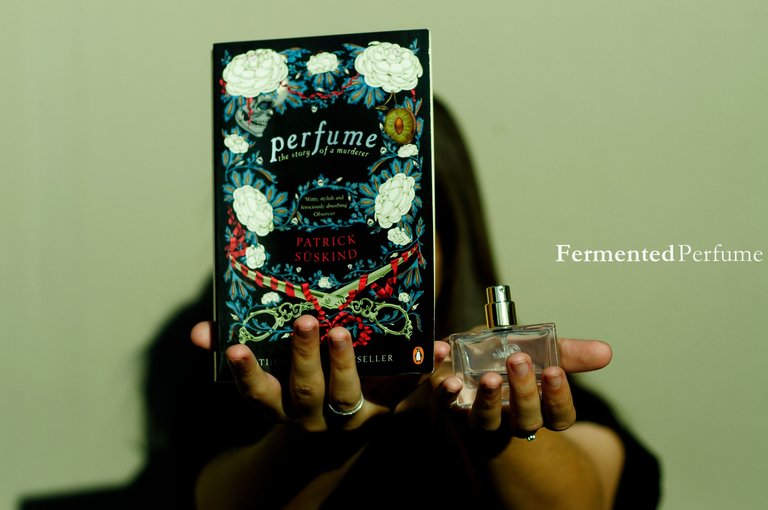
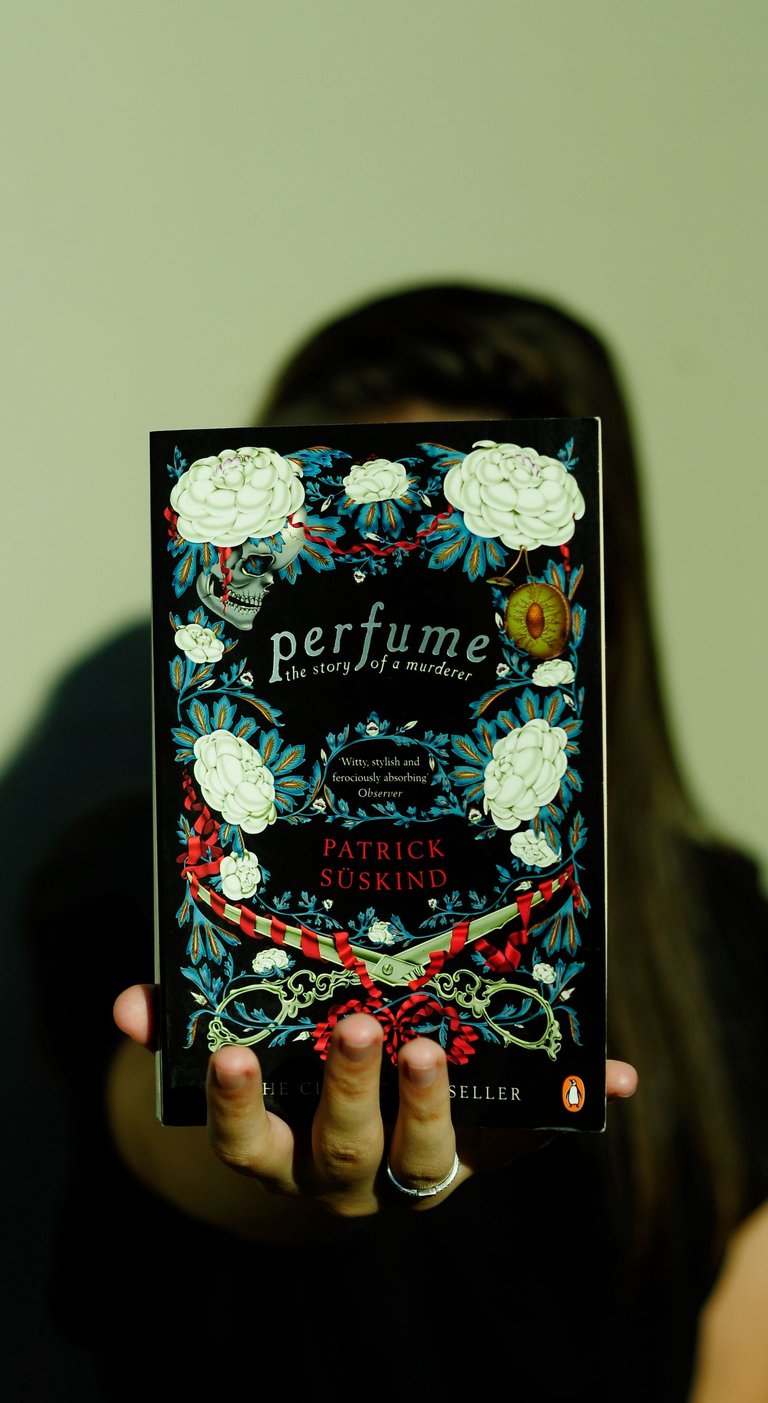
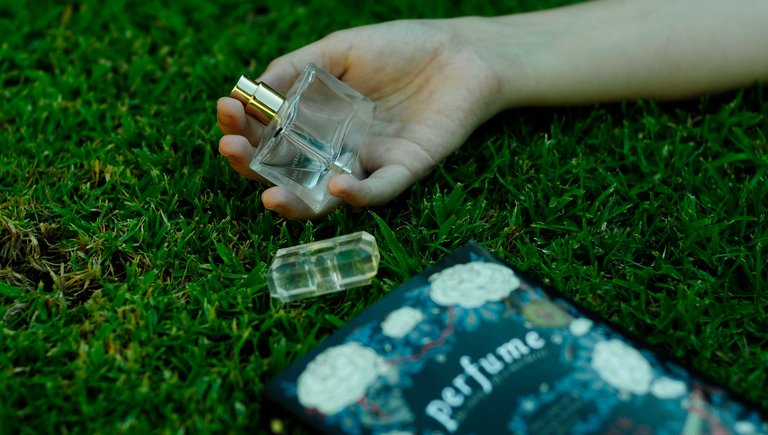
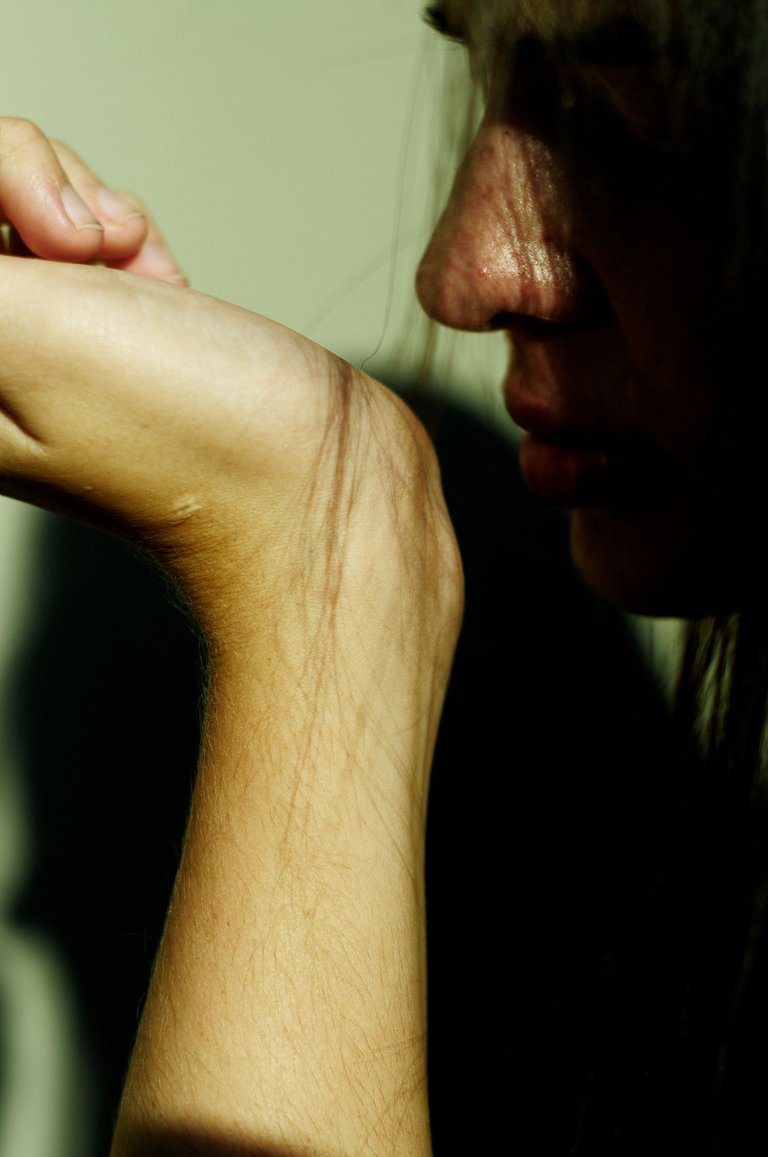
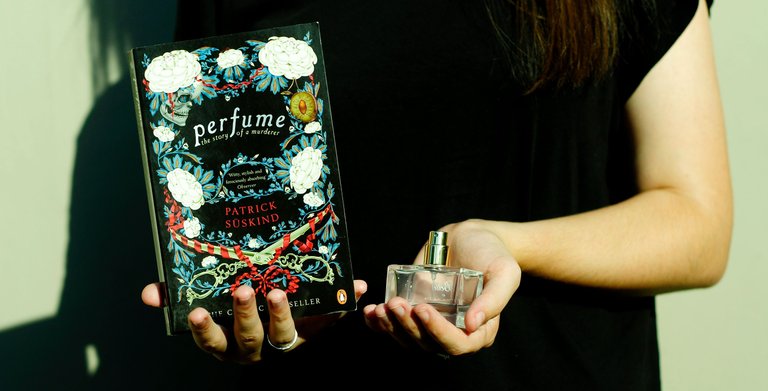
I can only surmise after reading this well-written and compelling review that, when a desire becomes an obsession, death might be the likely end. What a complicated character!
This is the first time I'm getting to know about this author and will add Perfume to my TBR. It's a book worth reading if only to enjoy the author's storytelling style. I love books that immerse me into the characters just as the author did with Jean-Baptiste Grenouille. Is the narration in first person? Cool photos. 🙂
!LUV
(1/4)@kemmyb sent you LUV 🙂
Made with LUV by crrdlx
Thank you so much for this wonderful comment! I really appreciate it. And I am so glad that the review read as well as you stated!
I am so glad that I could bring you into contact with this brilliant book. Please do yourself a favour and read it!
No, it is not in the first person. It is told in the third-person omniscient perspective. It makes for an interesting read for sure.
Congratulations @fermentedphil! You have completed the following achievement on the Hive blockchain And have been rewarded with New badge(s)
Your next payout target is 20000 HP.
The unit is Hive Power equivalent because post and comment rewards can be split into HP and HBD
You can view your badges on your board and compare yourself to others in the Ranking
If you no longer want to receive notifications, reply to this comment with the word
STOPTo support your work, I also upvoted your post!
Check out our last posts: